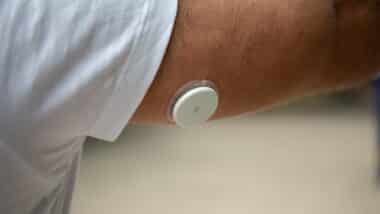 Gabapentin, commonly sold under the brand name Neurontin, is used with other medications to prevent and control seizures.
Gabapentin, commonly sold under the brand name Neurontin, is used with other medications to prevent and control seizures.
It is also used to treat nerve pain associated with shingles, peripheral neuropathy, diabetic neuropathy, sciatic pain and multiple sclerosis.
A new investigation is looking into claims from women that using gabapentin while pregnant caused them to have children with birth defects.
This risk was not adequately disclosed on the drug warning label, leading to a class action lawsuit investigation against the makers of gabapentin and Neurontin.
Neurontin Pregnancy Category
Neurontin is an anticonvulsant that is primarily prescribed to treat seizures, and is manufactured by Pfizer Inc. It is also prescribed to treat and manage chronic pain.
The U.S. Food and Drug Administration has assigned gabapentin to the pregnancy category C, which means that clinical studies featuring animal fetuses had shown adverse reactions when interacting with this drug.
According to medical experts, pregnancy C category drugs should not be used by pregnant women unless the potential benefits outweigh the risks. This puts women who suffer from epilepsy or chronic pain in a difficult position when deciding whether to continue Neurontin if they become pregnant. It also puts women at a disadvantage if they do not realize they’re pregnant while using the drug.
Women who suffer from epilepsy must rigorously keep up with their medications, but their worries are doubled when they become pregnant because they often find themselves choosing between the health of their fetus and the overall health of their body. Regardless of the choice the woman makes, she should stay heavily monitored by her physician and follow all medical instructions.
The same holds true for women who use gabapentin for pain management. If the pain is severe, it may not be in their best interest to discontinue the medication if the risk to their health is greater than the risk of birth defects. Only a doctor can help you make this decision.
Generally speaking, women are advised to not take any medications while pregnant unless medically necessary, with the most concern surrounding the first twelve weeks of their pregnancy. This is arguably the most vital stage of the pregnancy, when the baby’s body and internal organs are forming.
Neurontin is a second-generation anticonvulsant, so physicians are hopeful that it may not present as prominent a risk of birth defects as first-generation anticonvulsants like Dilantin or Luminal.
However, data surrounding pregnant women using newer anticonvulsants is limited, leaving experts very wary. Birth defects associated with anticonvulsant medications include, but are not limited to:
- Cleft palate
- Craniosynostosis (Skull Malformations)
- Other Bone Malformations
- Heart Defects
- Hydroureter or Hydronephrosis
- Hypospadias (abnormality in the opening of the urethra)
- Polydactyly
- Spina Bifida
Overview of Anticonvulsant Birth Defects Link
Every year, hundreds of pregnant women take anticonvulsant medications to treat various conditions like epilepsy, migraines, chronic pain, and seizures.
There have been several studies conducted to determine the risk of birth defects from anticonvulsant drugs, with some experts complaining that the data was insufficient and that further studies are needed before any conclusions are drawn.
For example, a Danish study conducted between January 1996 and September 2008 had observed 1,532 women who had taken second-generation anticonvuslant drugs during their first trimester; this study observed a total of 837, 795 live births.
According to the study, a little over a thousand of these women took Lamictal, 400 took Trileptal, 100 took Topamax, and nearly 60 had been exposed to Neurontin or Keppra. Some of the subjects were on multiple medications. From the results, approximately 3.2% of infants exposed to one of the drugs had developed major birth defects, compared to 2.4% of babies who developed birth defects without any drug exposure.
From this study the risk of anticonvulsant birth defects was minimal, which was good news to many pregnant women and their healthcare providers. However, experts caution against celebrating these results because nothing was conclusively proven during the study; even with the small number of birth defect occurrences, the risk of congential defects remains at nearly 3.2%.
Additionally, the number women who were specifically prescribed Neurontin during the study was too small of a population. Researchers said they would require additional data before any conclusion about gabapentin birth defects could be drawn.
Some women who took gabapentin during pregnancy say they were never fairly warned about the true risks of birth defects from taking the drug. Some of these women have chosen to file gabapentin birth defect lawsuits against the drug maker for negligence and failure to warn, seeking compensation for medical bills, pain and suffering, and more.
Do YOU have a legal claim? Fill out the form on this page now for a free, immediate, and confidential case evaluation. The birth defect attorneys who work with Top Class Actions will contact you if you qualify to let you know if an individual Neurontin lawsuit or Neurontin class action lawsuit is best for you. [In general, Neurontin lawsuits are filed individually by each plaintiff and are not class actions.] Hurry — statutes of limitations may apply.
Get Help – It’s Free
Join a Free Neurontin Birth Defects Lawsuit Investigation
If you or someone you know took Neurontin (gabapentin) while pregnant and had a baby with a birth defect, you or this person may have a legal claim. See if you qualify by filling out the short form below.
A Neurontin birth defect attorney will contact you if you qualify to discuss the details of your potential case at no charge to you.
Oops! We could not locate your form.
ATTORNEY ADVERTISING
Top Class Actions is a Proud Member of the American Bar Association
LEGAL INFORMATION IS NOT LEGAL ADVICE
Top Class Actions Legal Statement
©2008 – 2025 Top Class Actions® LLC
Various Trademarks held by their respective owners
This website is not intended for viewing or usage by European Union citizens.












